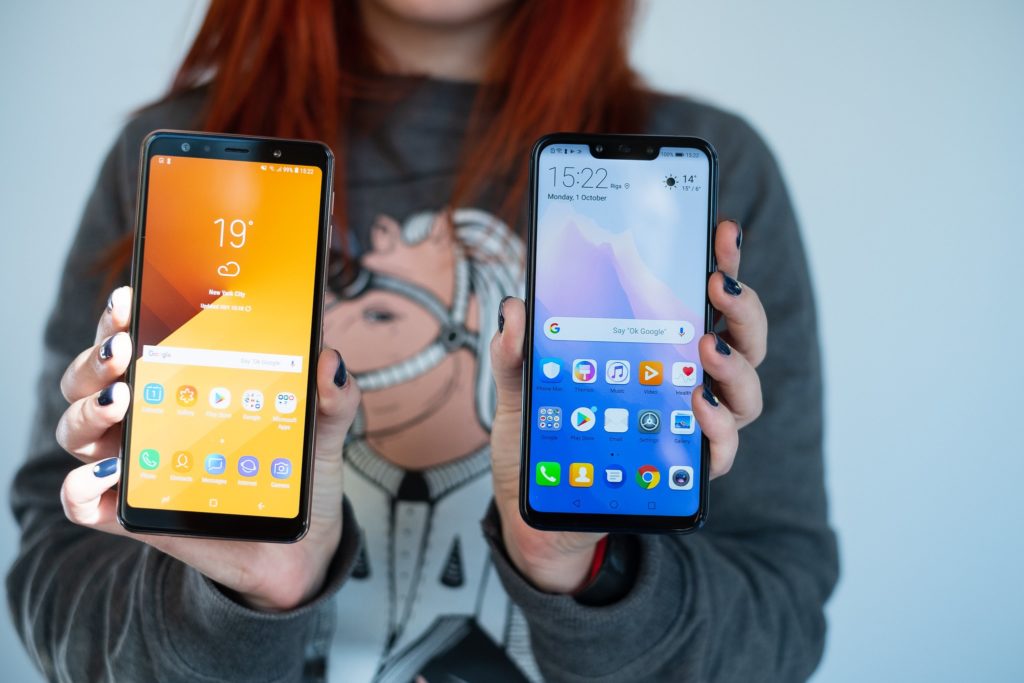The Peninsula
Emerging 5G industry in South Korea amid the U.S.-China Trade Conflict
Published December 6, 2019
Category: South Korea, China, Economics, U.S. Foreign Policy

By Hyoshin Kim and Junsoo Kweon
5G offers faster data speeds than current mobile networks and could transform the global economy through fields like Internet of Things (IoT) and self-driving cars. This network is also critical to a nation’s military capabilities. It can share huge volumes of data across vast distances, allowing governments to track missile launches and transmit real-time drone footage.
Given the security implications of the 5G industry, the U.S. government is concerned with China’s rising dominance in this sector. The Chinese company Huawei is already a leading global information and technology provider. It is also active in South Korea’s telecommunications market. As the U.S. government monitors Huawei, the company’s presence as a 5G vendor in South Korea has created a dilemma.
The Trump Administration has warned allies that Huawei is an untrusted 5G vendor. This is because China’s National Intelligence Law requires all people and entities within China to abide by the decisions of China’s communist government. If the Chinese government wanted some information from Huawei’s networks, all it has to do is ask.
To make the situation worse, The Washington Post reported that Huawei conducted “secret operations to build North Korea’s wireless network”. The company’s history of operating in countries like Iran further intensifies concerns around Huawei’s intentions to become the principal provider of 5G technology to East Asia.
Despite these concerns, South Korea continues to accept Huawei contracts. Huawei’s price-competitiveness has attracted significant attention in the race to develop regional 5G network infrastructure. One of the three mobile phone service providers, LG Uplus, in South Korea has partnered with Huawei to build its 5G network. Meanwhile, the Japanese government decided to ban Huawei, pushing back on any official contracts with Huawei in its telecommunications network.
The U.S. government insists that the risk of information leaking to China through Huawei’s 5G networks could endanger the U.S. alliance with South Korea and Japan. Randall Schriver, the Assistant Secretary of Defense for Asian and Pacific Security Affairs, said “The United States doesn’t want to see a situation arise where we don’t have confidence in sharing sensitive information with our ally and information being safeguarded.”
South Korea, in particular, is caught in between China and the United States. China is geographically closer to South Korea and makes up a larger share of its foreign trade. China accounts for 26.8% of South Korea’s exports. Leveraging this economic clout, the Chinese government is pushing South Korea to continue trading with Huawei.
In response, South Korea has been actively developing its own 5G industry that can compete with Huawei. In June, the government of South Korea launched a 5G plus strategic committee to establish a long-term plan to enhance the Korean companies’ share in the 5G telecommunication equipment market. Furthermore, Korea is actively looking to cooperate with ASEAN markets on 5G network buildout, providing an avenue for Korean technology companies to scale-up its 5G capacity.
With the government’s support, Samsung is expanding its 5G business. Already the world’s biggest supplier of smartphones and computer chips, Samsung plans to utilize its existing infrastructure to give it a competitive edge over Huawei in 2020. In addition, Samsung is a leader in the semiconductor industry, which provides core components for 5G base stations and transmitters. As Samsung develops smaller and faster semiconductors, its 5G wireless technology is also anticipated to improve.
Samsung is also positioning to be a possible partner of the United States. Claude Barfield, a scholar at the American Enterprise Institute, argued “It is not clear if Huawei’s two current competitors — Sweden’s Ericsson and Finland’s Nokia — will be able to match Huawei’s prodigious resources. Samsung could develop into a potent third option over the next several years.” As South Korea looks to bolster its own tech infrastructure while balancing its security needs, it is worth paying greater attention to South Korea’s 5G network.
Hyoshin Kim is an Asan Fellow and an intern at the Korea Economic Institute of America. Junsoo Kweon is an Asan Fellow and intern at the Heritage Foundation. The views expressed here are the authors’ own.
Photo from Kārlis Dambrāns’ photostream on flickr Creative Commons.
